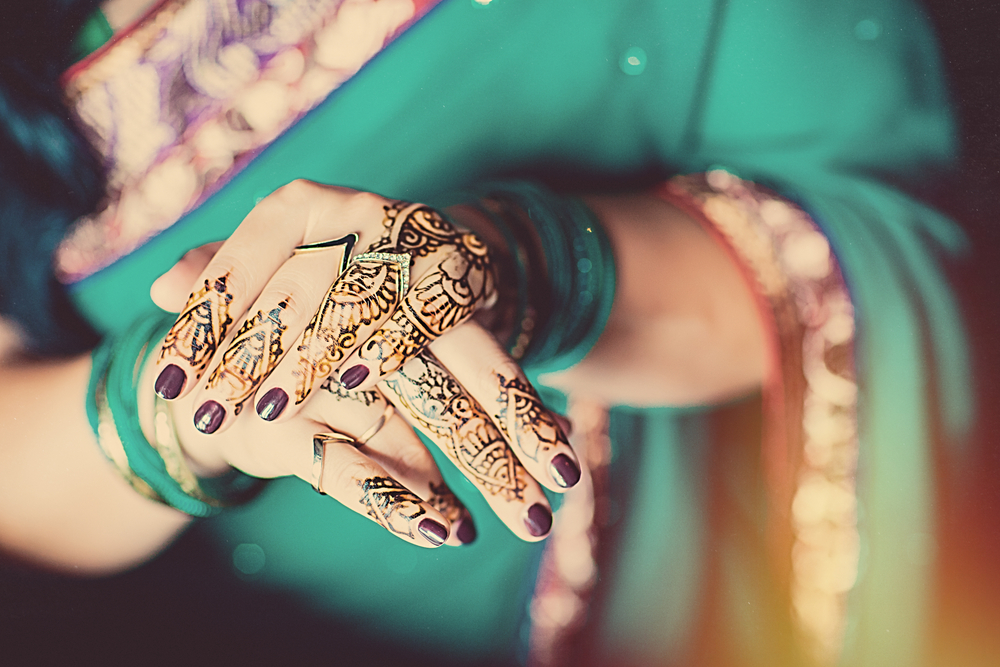
by Kaye M
Even before Lucy opened the wardrobe, I knew what would line its inner walls.
Well-cut British coats, skinned stoles and pared-down furs: the colonialist’s catalog of outfits for the ideal presence, the right steps forward in order to dominate societies, silence differently accented tongues and subdue duskier skin into submission, subordination, and shame.
There were no folded saris on the top shelf of the wardrobe. There were no hidden drawers that would part like smiling lips to reveal a hidden underbelly of broad hoop earrings, half-used mehndi cones from a cousin’s rukhsati, glistening fish-scale dupattas and the finely stitched, dream-sheer shalwar kameez they are spun to match, spare Eid cards strewn on the bottom or plastered against its back wall.
None of the cool, collected gowns have found a mate in a flirty set of slippers, curled with pleasure at their tips. The leather purses are empty or filled with coins, instead of spare safety pins and brooches, the odd bobby pin and forgotten tikka stashed away alongside sugared almonds and a stray business card.
I lived in Narnia and other worlds, other books, other lifetimes, like it. I have spent hours on their pages and hardly stirred up dust in their eternally unruffled microcosms. There is no sign of my being there: no hijabs strewn over a bed in a boarding school as though in a moment, red-cheeked and bright-eyed from a grand adventure through time and space, I will return and stuff them back into a drawer.
No gulab jamun offered in the fingers of a kind alley instead of biscuits and tea. No cousins cartwheeling about bright, fragrant platters of pilaf. No aunties furrowing their brows at my dirty skirts since I tumbled heels over head down a rabbit hole and came back a half-size larger than I should be with cookie crumbs around my mouth.
And so, because they would not bend and yield and acknowledge me, I thought I was not worth the trouble, worth the time, worth the magic taken by these hands and minds to carve out such spaces for both worlds where, as Kipling would have proudly noted, a crown and willing subjects awaited, and well-cut British coats and skinned stoles and pared-down furs could wait, cool and collected, for adult affairs and time to pass and another narrative to step into, just biding its time to be acknowledged.
Our words should be enraptured with our brown girl beauty. We live at a juncture between these worlds, all our own, that should be acknowledged, charted out and mapped for others to stumble upon and take pleasure in. We do not need to confine ourselves to plain, flat entries about what we’ve eaten, where we’ve dallied, the straight lines of our mothers’ kitchens—colorless counters and tabletops rather than the jubilee of just washed dates and new-baked sweets and simmered curries that we will dip a fingertip into and let our tongue take joy in every spark of spice.
We can take account of our beauty: unfolding the saris at the top of the wardrobe and holding them up against our bodies, smiling shyly when our aunts advise us to wear them, don’t be afraid of a little kohl, don’t shy away from laughing with your mouth wide and your hip cocked and toss the petals at the bride with a little extra force because we are alive and we are lovely and we live and we love.
Because they would not bend and yield and acknowledge me, I found the juncture between the worlds in which we live. We wear worn Sketchers with jeans and under bright tunics and wrapped pashminas and have our grandmothers’ faces the way they looked in the old sepia photographs-war-weary warriors with a hidden glint in their eyes. We carve out our spaces—business casual with a scarf on top, wedding reception gown with a dupatta slung over our shoulders and a Bollywood track queued up as we’re doing our hair. We make our mark in the stories we weave. We should. We ought to.
And we do it with poise, grace and beauty. We are beautiful. We see others falling to their knees in our wake, hurriedly dabbing the petals that fall away from our heels under their eyes and against their arms—borrowed plumage, that they claim is theirs to begin with. We should own it, and take account of it.
Our stories require magic. To wear glittering fish-scale dupattas and dream-sheer shalwar kameez and don slippers to dance with living stars, to lounge in the shadow of a Sultan’s courtyard and skip love-languid fingers in a foundation and draw them back with a talking fish clasped between them, to clasp broad hoop earrings to our lobes and lean them to the mouth of a charming troublemaker, striking a bargain between heaven and earth in exchange for stepping forward to be their champion.
Even before Lucy opened the wardrobe, I knew what would line its inner walls.
And I knew, to the very marrow of me, that should I open my wardrobe, Narnia would not fall on its knees for me. But, in between the half-empty purses and spare Eid cards and half-used mehndi coins, I’d see the glint of another world—a broader, richer, world with fox burrows to dart into instead of already explored rabbit holes and the occasional prince to rescue and syrup-sweet sunsets in societies that stood in their own sunlight, spoke differently-accented tongues and wore their skin with pride, determination, joy.
We can take account of our beauty, in our writings, in the stories we weave.
We can open each wardrobe and list the marvels within it, for others to stumble upon and take pleasure in. It begins with this moment, right now. It begins with a closing of our eyes and a smile on our face because this is our heritage, our voice, and it is smooth and soft as silk between our fingertips and does not choke us when it glides about our necks and over our hair.
There are and there will be beautiful stories folded away between rich brocades and fine cloth, with our names in them. There are beautiful poems with our legacies and epics and adventures.
We are worth the trouble. We are worth the time.
We deserve magic and unexplored horizons and fantastical worlds, too. We deserve those stories. We deserve that beauty.
 Kaye M. is a biracial Muslim-American YA writer and overworked undergrad. She has been published on The Toast and Love, Inshallah and profiled on MTV and Buzzfeed, among others, for creating the viral 2014 hashtag #YesAllWomen. When she is not advocating diversity and feminism online, she is hard at work on adding her voice to the growing list of authors within the Muslim YA canon and obsessing over tea, magical girls, Studio Ghibli, and lip colors.
Kaye M. is a biracial Muslim-American YA writer and overworked undergrad. She has been published on The Toast and Love, Inshallah and profiled on MTV and Buzzfeed, among others, for creating the viral 2014 hashtag #YesAllWomen. When she is not advocating diversity and feminism online, she is hard at work on adding her voice to the growing list of authors within the Muslim YA canon and obsessing over tea, magical girls, Studio Ghibli, and lip colors.




